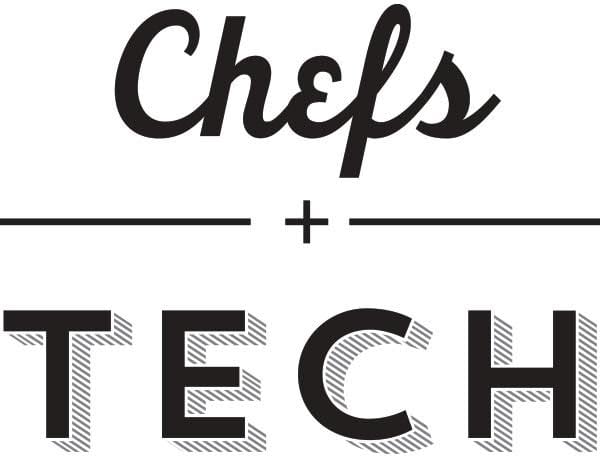Chefs+Tech: Chipotle Haunted by News of Store Closure Due to Illness
Skift Take
 Editor’s Note: In September we announced that Skift was expanding into food and drink with the addition of the Chefs+Tech newsletter.
Editor’s Note: In September we announced that Skift was expanding into food and drink with the addition of the Chefs+Tech newsletter.
We see this as a natural expansion of the Skift umbrella, bringing the big-picture view on the future of dining out, being fanatically focused on the guest experience, and at the intersection of marketing and tech.
Bonus: We now publish C+T twice weekly.
Reports of Illness Briefly Close One Chipotle Restaurant
Q: What happens when a major restaurant chain experiences an unfortunate foodborne illness outbreak? A: It will spend the rest of its years in business recovering from the negative press. I’m referring, of course, to Chipotle, whose stock tanked this week after recent news of a Washington, D.C.-area location’s closure after several people reported getting sick after eating there. According to Jim Marsden, Chipotle’s executive director of food safety, reported symptoms are consistent with norovirus, which is not a foodborne illness and does not come from food.
Still, it seems people are on high alert after the 2015 salmonella and E. coli outbreaks tied to Chipotle, and for all of the branding work, education, and public-facing initiatives the company takes on, even the smallest report of illness potentially tied to the restaurant can turn stomachs of customers and investors. The store reopened yesterday after a “complete sanitation,” according to Marsden.
Credit Card Companies Advocate for Cashless Restaurants
Remember the last time you unexpectedly found yourself in a cash-only bar or restaurant? It doesn’t just feel weird, it actually feels like an inconvenience. Operating a cashless business is still novel enough to be a marketing point — i.e., “We’re tech savvy and streamlined!” — and now the country’s biggest credit card companies are upping the ante as they see a cashless future, and more money, from restaurants that stop accepting physical money. Visa recently announced it will award 50 restaurants $10,000 each toward marketing efforts to stop accepting cash.
The incentive to go cashless is more than just marketing. Dealing with cash takes time and effort — staff have to go to the bank to make deposits, and time spent on counting and handling cash adds up. But it’s not like accepting credit cards is free either, since the credit card company takes a cut from each sale. Still, in a world where many people are going cashless anyway, where pay-with-your-phone is a lot easier than even pulling out a physical credit card, this seems to be where the industry is heading.
Top Chef Stephanie Izard Used to Work at Olive Garden
Even the best chefs in the world start somewhere, and for Chicago’s Stephanie Izard, Top Chef champion and chef/owner of some of the city’s hottest restaurants, that somewhere was an Olive Garden in Arizona. She tells Bloomberg Pursuits that she worked the lunch shift at the restaurant, though “no one eats at Olive Garden for lunch when it’s 115 degrees outside,” so her shift was usually cut short. She did proudly share that she can still sing the birthday song — and Olive Garden shared its pride on Twitter.
In other fun Olive Garden news, there’s apparently a thread of thousands of commenters defending their decision to eat at the Olive Garden that’s situated at the north end of Times Square. That restaurant has been the subject of ridicule for decades, but it’s still there and always packed, so who has the last laugh?
Eater Calls All-Day Dining the Year’s Biggest Trend
…but it’s a smart business decision, too. I never knew how much I needed all-day dining options until I became a parent late last year. Instead of hanging on my favorite counter stool for hours at night, I sidle up to small tables with enough space to fit my baby’s stroller. The Eater piece features some of the country’s new and notable all-day spots, noting that all-day full-service restaurants can take advantage of the popularity of fast-casual dining, but also that it helps restaurants maximize profits, which is probably a huge reason some restaurants make the decision to serve all day.
You can’t serve food all day without customers, though, and as the piece notes, restaurants offering this are mainly found in larger cities. Flexible work schedules, work-from-home arrangements, and the freelance economy mean more people are interested in finding pleasant workspaces to spend their time. It also makes sense to maximize the amount of hours a restaurant is making money — the cost of the space is likely the same whether it opens at 5 p.m. or 8 a.m.
The possibilities for space usage and new concepts is exciting. I especially enjoy all-day restaurants that have distinctly different feelings during different day parts — Tartine Manufactory in San Francisco, for example, offers a spectacular breakfast and coffee menu, several amazing lunch options, and at dinner time becomes a hip, date-night-worthy destination with a killer wine list. It’s fun, and I’m fiercely loyal to all three meals at the restaurant. That said, it could just be a trend, as Eater calls it, which means the market could soon be saturated with a spate of openings. Until then, here’s to enjoying inventive concepts and menu items at these new spaces.
Digestifs
- Pizza Hut will hire 14,000 new drivers this year — Bloomberg
- Former “gypsy brewers” are opening their own beer-producing spaces — NYTimes Food
- Vegan vending machines coming to San Francisco. Of course they are — Eater SF




